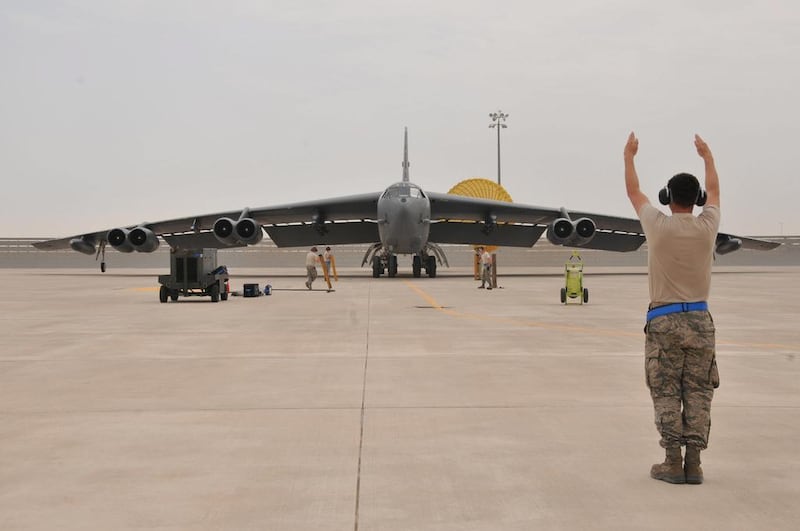The Pentagon has downplayed the Qatari state news agency’s announcement about plans to expand the Al Udeid airbase, the biggest military facility used by Washington in the Gulf.
Although not a “permanent” base, the US military installation plays host to more than 11,000 US troops and has been in operation since 2002.
The Qatar News Agency (QNA) said representatives from both countries on Tuesday "laid the foundation stone for expanding" Al-Udeid.
But the Pentagon played down the development, pointing out nothing concrete had been decided.
"It is premature to discuss aspects of a potential base expansion at Al Udeid airbase in Qatar," Lieutenant Commander Rebecca Rebarich said in a statement.
"The US military is working with the Qatari ministry of defence on further details of the proposal to help us to plan appropriately and ensure we will use any new facilities effectively," she said.
According to QNA, the project includes "the construction of barracks and service buildings to support joint security efforts, as well as improving the quality of life of the troops stationed at the airbase".
Other members of the US-led coalition fighting ISIS in Syria and Iraq are also deployed at Al Udeid, located 35 kilometres southwest of Doha.
QNA said the expansion project "underscores Qatar's commitment to deepening its strategic military relations with the United States".
Ryan Gliha, the US charge d'affaires in Doha, echoed this in remarks at a news conference after the ceremony to lay the foundation stone for the expansion of Al Udeid.
"We saw today the opening of a new construction project … what we hope to see in the coming years and months is [the] strengthening" of bilateral ties, he said.
____________
Read more:
Qatar puts its political ambitions before its people, UAE's Gargash says
Terrorist activity in Bahrain falls after Qatar boycott, foreign minister says
[ US wants to 'build momentum' for Gulf crisis summit ]
____________
In April, US President Donald Trump met with the Emir of Qatar, Tamim bin Hamad Al Thani, iat the White House.
Saudi Arabia, along with the UAE, Bahrain and Egypt cut relations with Qatar over their support for terrorism and interference in the internal affairs of other countries.
US President Donald Trump had initially supported an economic blockade on Qatar, but aides — mindful of the pivotal role of Al Udeid in US Middle East operations — convinced him to take a more moderate approach.





